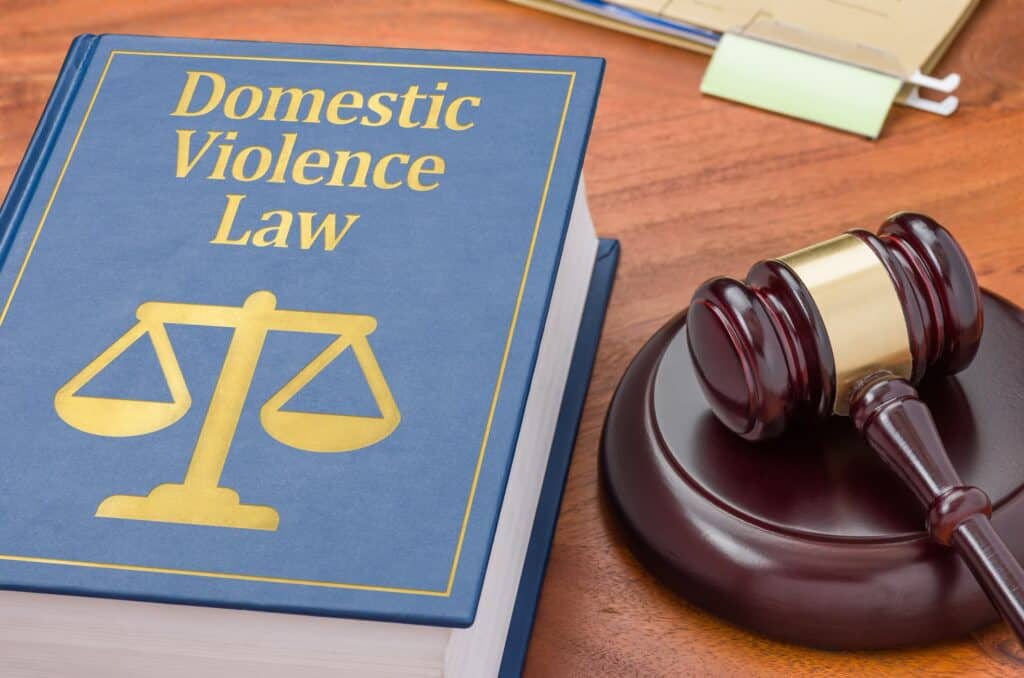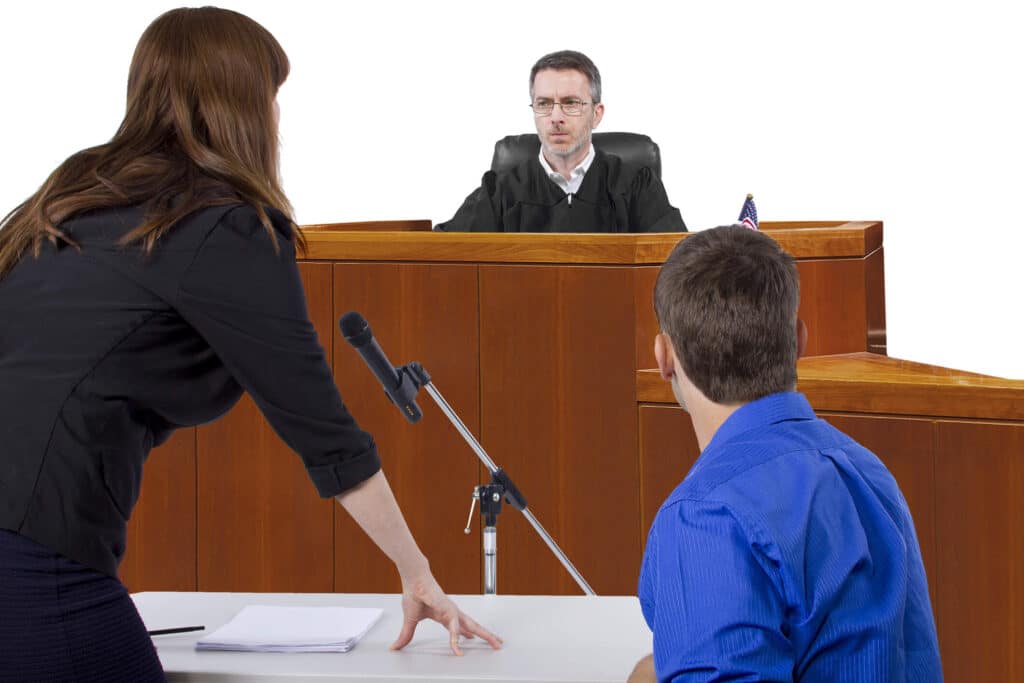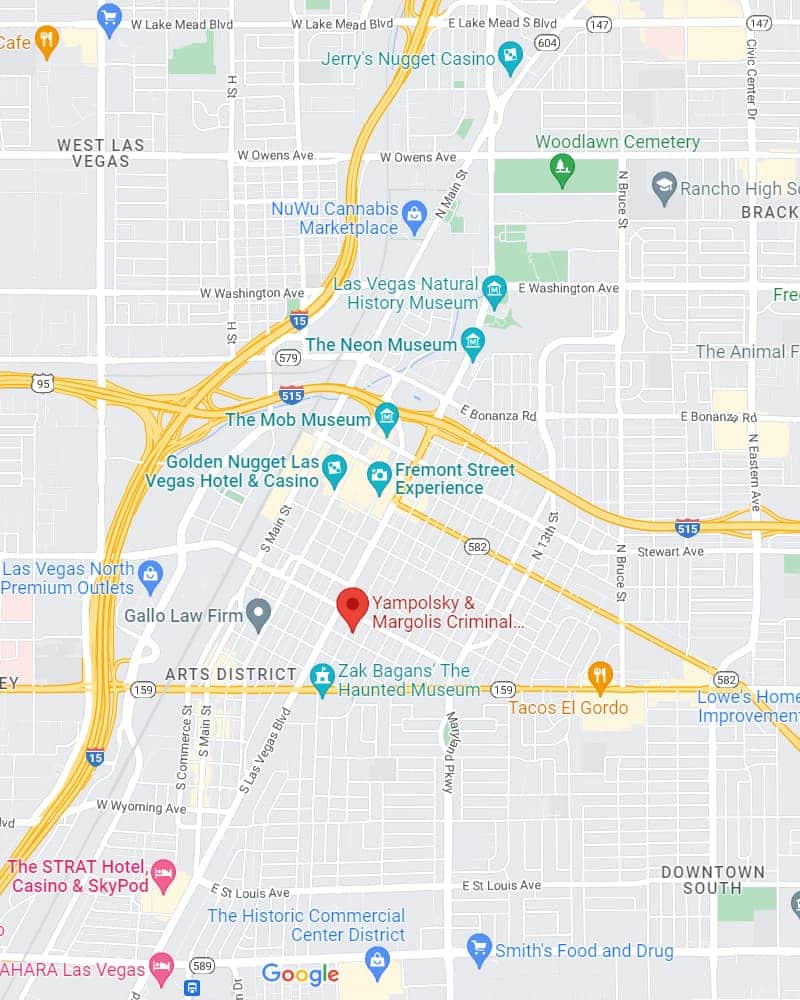Domestic violence is a severe concern that affects many individuals and families across the nation, and each state has its own legal parameters to address and combat this issue. In Nevada, understanding how the state defines domestic violence is crucial for both potential victims and those facing accusations. In this blog post, we’ll delve into “How Does the State Of Nevada Define Domestic Violence”, shedding light on the various elements that constitute such offenses.
Nevada Law defines domestic violence as a pattern of abusive behavior that occurs within an intimate relationship, including but not limited to marriage, dating, family, or household relationships. This pattern of behavior encompasses physical violence, emotional abuse, assault, harassment, intimidation, and any coercive actions that may instill fear in the victim.
Types of Domestic Violence
Domestic violence is a complex and multifaceted issue that can manifest in various forms, each with its own set of characteristics and consequences. Understanding the different types of domestic violence is essential for recognizing and addressing the diverse experiences of victims and survivors. While these types may overlap or co-occur within a single abusive relationship, they each represent distinct patterns of behavior and dynamics. Some common types of domestic violence include:
1. Physical Violence
Physical violence refers to any intentional use of force or touching aimed at causing harm within an intimate relationship. This covers hitting, punching, kicking, slapping, choking, or any other form of physical assault. Victims may show visible marks or injuries, and the effects can range from disfigurement to severe pain or even death. This behavior is not limited to spouses or partners; it can occur between individuals in close relationships, including family members, cousins, or guardians.
Domestic battery allegations can lead to severe consequences, including criminal convictions and loss of rights. It’s crucial to seek assistance from law enforcement or a trusted law firm in situations involving domestic violence accusations.
2. Emotional Abuse
Emotional abuse is a harmful pattern of behavior that seeks to undermine a person’s self-worth, emotional well-being, or independence. This can include verbal attacks, insults, humiliation, manipulation, gaslighting, or threats designed to create fear or exert control over the victim. Unlike physical violence, emotional abuse doesn’t leave visible scars, but its impact can be profound and enduring, affecting the victim’s mental health, self-esteem, and overall life quality.
If you or someone you know is experiencing emotional abuse, it’s essential to seek assistance from resources like law firms, family members, or support organizations, as emotional abuse is a serious matter that requires attention and understanding.
3. Assault
Assault encompasses deliberate actions that induce fear of imminent bodily harm or physical violence in another individual. This extends to gestures, behaviors, or conduct that reasonably instill a sense of danger in the victim’s perception.
Although physical contact may not occur in every instance of assault, the psychological impact of the fear and intimidation it evokes remains profoundly damaging, categorizing it as a form of domestic violence. Understanding that domestic violence transcends mere physicality, recognizing the significance of emotional and psychological trauma is paramount.
Thus, addressing assault within the context of domestic violence requires not only acknowledgment of its diverse manifestations but also comprehensive support and intervention to ensure the safety and well-being of victims.
4. Harassment and Intimidation
Harassment and intimidation in the context of domestic violence encompass a range of persistent and unwelcome behaviors intended to control, coerce, or instill fear in the victim. This can manifest through various means, including stalking, constant surveillance, unwanted communication via phone calls, text messages, or emails, as well as uninvited appearances at the victim’s home or workplace.
Such actions are strategically employed to exert power and dominance over the victim, fostering an environment of fear and insecurity within the relationship. The cumulative effect of these behaviors can have profound psychological and emotional repercussions on the victim, perpetuating a cycle of abuse and manipulation.
5. Coercive Acts
Coercive acts or intolerable acts encompass a range of behaviors aimed at manipulating or forcing the victim to comply with the perpetrator’s demands. This can include threats of harm or retaliation, financial control, isolation from friends and family, or using children as leverage. Coercive control tactics are often subtle and insidious, making it difficult for the victim to recognize and escape the abusive situation. However, they are nonetheless a form of domestic violence, as they serve to maintain power and control over the victim.
Understanding these acts constituting domestic violence is essential for identifying and addressing abusive behavior within intimate relationships. By recognizing the signs of domestic violence and seeking help and support, victims can take steps to protect themselves and break free from the cycle of abuse. Additionally, holding perpetrators accountable for their actions through legal means is crucial for ensuring justice and preventing further harm to victims.

Protection Measures
In Nevada, combating domestic violence is a top priority, evidenced by the implementation of robust legal measures aimed at protecting victims. Central to this protective framework are restraining orders, also known as protective orders, which play a crucial role in safeguarding individuals from further harm.
These legal directives effectively create a barrier by prohibiting contact between the accused and the victim, prioritizing the safety and well-being of the victim above all else. The state’s imposition of severe legal consequences for offenders disregarding these restrictions emphasizes the seriousness of violating such orders.
This strict approach underscores Nevada’s unwavering commitment to promptly intervene and mitigate the potential risks faced by victims of domestic violence, highlighting the critical importance of adhering to protective orders for the safety and security of all parties involved.
Role of Law Enforcement
Law enforcement agencies play a crucial role in handling domestic violence cases. They are trained to assess the situation, gather evidence, and provide immediate protection to victims. Nevada Law mandates the arrest of the primary physical aggressor in domestic violence incidents, emphasizing the state’s commitment to intervening and preventing further harm.
Legal Consequences
Domestic violence charges in Nevada carry significant legal consequences that can profoundly impact individuals involved, whether as victims or accused parties. Depending on the severity of the offense, those convicted may face a range of penalties, including hefty fines, probationary periods, mandatory counseling or rehabilitation programs, and even imprisonment.
Understanding the full scope of these potential repercussions is crucial for all parties involved. Victims must know their rights and the legal avenues to seek protection and justice. At the same time, accused individuals must comprehend the gravity of the charges against them and the potential consequences of a conviction.
By having a comprehensive understanding of the legal landscape surrounding domestic violence charges in Nevada, individuals can make informed decisions and take appropriate actions to safeguard their rights and well-being.
How Does Police Determine Who The Aggressor Is In A Domestic Violence Situation? Is Someone Always Arrested? What Are The Penalties For A Domestic Violence Conviction?
In most cases, there will be more than one police officer called to the scene of a domestic violence situation; the people involved will be separated and interviewed by the officers. In some cases, one of the participants will refuse to be interviewed, which can end up being helpful for a criminal lawyer. However, as a practical matter, refusing to be interviewed would likely result in an arrest. The police will also look for marks or injuries on the parties involved in order to determine the identity of the aggressor. They will take photographs of any injuries and include them in the police report.
For the first offense of battery domestic violence, the potential penalties are a mandatory minimum of two days in jail to six months in jail, and a fine of anywhere from $200 to $1,000 (not including court fees). In addition, weekly, in-person counseling sessions of not less than one and a half hour per week shall be required. Ther may be may an additional requirement the defendant to attend alcohol and/or drug treatment.
If someone is charged with domestic violence, they could be charged with misdemeanor battery domestic violence, which is a progressive crime. This means that if the individual commits a subsequent violation within seven years, the penalties will increase to anywhere from 10 days to six months in jail, between 100 and 200 hours of community service, a fine of $500 to $1000 plus fees, and weekly counseling sessions for one year. Once again, the court can order alcohol or drug counseling. A third offense within seven years is a category C felony, which is punishable by a sentence of imprisonment in Nevada State Prison for at least one year and not more than five years, a potential fine of $1000 to $10,000, and it is not probationable.
A serious type of domestic violence is domestic violence with strangulation, which is a felony and carries severe penalties. If severe injuries were sustained by the victim, then the aggressor could face a felony charge of domestic violence. If a child under the age of 18 was the victim, then the court may refer the child to child protective services or the division of family services.
Unless the circumstances are really egregious, bail will usually be granted. The minimum is $2000 and will likely increase for subsequent offenses. If someone committed domestic violence against one of their children, then they may be restricted from seeing any of their children by a no-contact order. If a no-contact order were to be violated, the perpetrator could be held in contempt and put in custody for up to six months. If the parties involved in a domestic violence case are married, the court will sometimes lift the no-contact order between them. Once charges related to domestic violence have been filed, a temporary restraining order (TRO) will automatically be put in place. In most cases, TROs last for the pendency of the case, but they could last for an entire year depending on the circumstances of the case.

Does An Alleged Victim Actually Need To Be Injured For Domestic Violence Charges To Be Brought?
A screaming match wouldn’t be sufficient to bring domestic violence charges, but if someone is hit and there are no marks to prove it, domestic violence could still be charged. This means that an injury is not necessary in order for domestic violence charges to be brought.
If the alleged victim changes their story and says that they do not want to press charges, the case will not necessarily go away. This is because the state of Nevada becomes the complaining party, and if the state of Nevada does not want to drop the battery charges, then it’s not going to happen. In some cases, the victim could speak with the prosecutor and explain that they overreacted out of emotion and that the defendant really didn’t do anything. Under such circumstances, the DA could choose to dismiss the charges.
On occasion, we will do a stayed adjudication, which is when the client pleads guilty with the promise that if they successfully meet all of the requirements, their case will be reduced to a lesser charge or dismissed altogether. In most cases, the charge would be reduced to the straight battery or disorderly conduct, neither of which carries as many requirements.
In some cases, the alleged perpetrator is not at the scene by the time the police arrive. If the police don’t make contact with the alleged perpetrator within 24 hours, they will send them a summons that states that they need to be in court on a certain date. Either the defendant or their defense attorney can go to court, plead not guilty, obtain the police reports, and have the case set for trial. Most of these cases resolve before trial, but some of them don’t. If a case goes to trial, self-defense is one strategy that’s often used. For example, if someone is being hit by another person, they can hit them back to protect themselves. Defense of a third party is also a defense.
Conclusion
Navigating the legal landscape of domestic violence in Nevada requires a nuanced understanding of the state’s definition and associated legal framework. The goal is not only to hold perpetrators accountable but also to ensure the safety and well-being of victims.
If you or someone you know is dealing with domestic violence issues in Nevada, seeking legal counsel promptly is crucial for a swift and effective resolution. Call us today to learn more about “How Does the State Of Nevada Define Domestic Violence”.
FAQs
Here are some frequently asked questions about State Of Nevada Define Domestic Violence:
Q. How does Nevada protect victims of domestic violence?
Nevada protects victims of domestic violence through various legal measures designed to ensure their safety and well-being. One significant way is through the issuance of protective orders, which restrict the accused perpetrator from contacting or being near the victim, their residence, or workplace. Law enforcement agencies are also mandated to intervene swiftly in domestic violence incidents, arresting the primary aggressor and providing immediate protection to the victim. Additionally, Nevada’s legal system imposes severe penalties on offenders, including fines, probation, counseling, and imprisonment, depending on the severity of the offense. These measures collectively aim to provide comprehensive protection to victims of domestic violence and hold perpetrators accountable for their actions.
Q. Are there any specific laws or statutes related to domestic violence in Nevada?
Yes, Nevada has specific laws and statutes dedicated to addressing domestic violence. These laws encompass various aspects of domestic violence, including definitions of what constitutes domestic violence, procedures for obtaining protective orders, penalties for offenders, and provisions for victim assistance and support services. One notable statute is NRS 33.018, which defines domestic violence and lays out the legal framework for protective orders. Additionally, other statutes within the Nevada Revised Statutes (NRS) address related issues such as assault, battery, harassment, stalking, and child abuse within the context of domestic relationships. These laws protect victims, hold offenders accountable, and promote safety and well-being within families and households.
Q. What are the legal rights of individuals involved in domestic violence cases in Nevada?
In Nevada, individuals involved in domestic violence cases have legal rights designed to protect their safety and well-being. Victims can seek protection through restraining orders and other legal measures, protecting them from further harm or harassment. Accused individuals also have rights, including the right to legal representation, the presumption of innocence until proven guilty, and the right to a fair trial. Understanding these rights is crucial for navigating the legal process effectively and ensuring justice is served for all parties involved.
Q. What is the abuse law in Nevada?
The abuse law in Nevada encompasses various statutes and regulations aimed at protecting individuals from different forms of abuse, including domestic violence, elder abuse, child abuse, and sexual assault. These laws outline specific behaviors and actions that constitute abuse, such as physical violence, emotional manipulation, neglect, or exploitation. Additionally, Nevada’s abuse laws provide mechanisms for reporting abuse, obtaining protective orders, and prosecuting offenders. The state takes a strong stance against abuse, with severe legal consequences for perpetrators. Residents need to understand their rights and the available resources for assistance or recourse in cases of abuse.
Q. How does the State of Nevada define domestic violence from other offenses?
The State of Nevada define domestic violence from other offenses by its focus on the relationship between the perpetrator and the victim. In Nevada, domestic violence encompasses abusive behavior occurring within intimate relationships, such as marriages, dating relationships, familial connections, or shared households. This distinction acknowledges the unique power dynamics and vulnerabilities in these relationships, emphasizing the need for specialized legal measures and protections to address such violence effectively.
Contact our Domestic Defense Violence Lawyers today!
Our attorneys at the Law Offices of Mace J. Yampolsky, Las Vegas, Nevada, specialize in domestic violence defense. We clarify the topic “How Does The State Of Nevada Define Domestic Violence,” encompassing physical and emotional abuse, sexual assault, harassment, intimidation, and coercive acts within relationships. Our attorneys adeptly handle cases involving weapons, protecting both victims and those wrongly accused.
With a focus on evidence and understanding the context of relationships, we vigorously defend our clients against prosecutors’ claims. Whether you need consultation or representation, contact us today to navigate your legal challenges with assurance.
If someone has been charged with domestic violence, they should absolutely talk to an experienced criminal defense lawyer who has handled a lot of domestic violence cases. I’ve handled over 500 domestic violence cases during the course of my career, and I’ve been practicing since 1981.
For more information on Domestic Violence Cases In Nevada and “How Does the State Of Nevada Define Domestic Violence”, a free initial consultation is your next best step. Get the information and legal answers you are seeking by calling (702) 385-9777 today.







